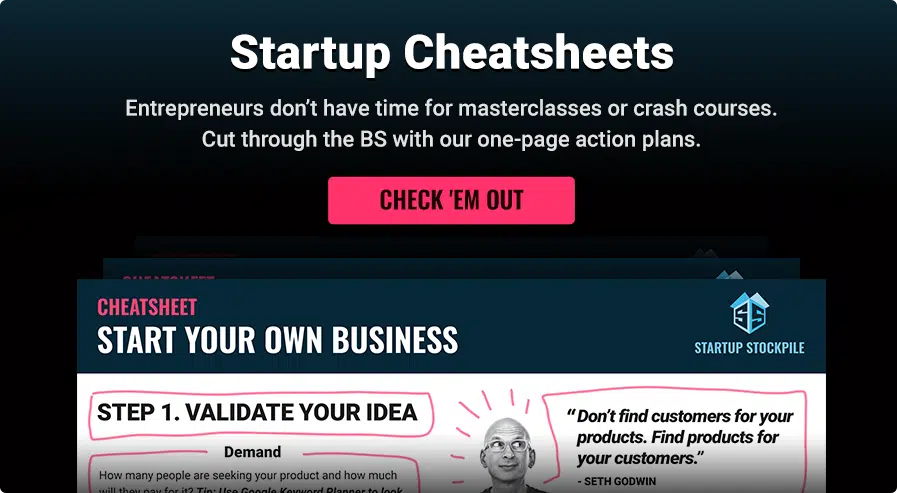Why is it important for your company to build a brand? Because building a brand means building a reputation people can trust. And when your business has a good reputation, people will buy your products and recommend your services.
But building a brand isn’t just useful for companies. The people behind the business need to build their brands as well. After all, they sell products, write content, cultivate relationships, and grow the business.
This is especially true for new companies that haven’t been around long enough to establish themselves in the marketplace. Business owners and founding teams with strong personal brands can help generate buzz and propel a startup into the spotlight.
Here are a few examples of successful personal brands that have done just that:
1. Alex Tunbull
Alex is the CEO and Founder of Groove, a help desk SaaS company that he bootstrapped to $500k+ MRR by blogging about his business journey and growing his email list to over 250K subscribers.
2. Codie Sanchez
Codie is the Founder and CEO of Contrarian Thinking and the co-founder of Unconventional Acquisitions, with over 1.5+ million subscribers across multiple social media platforms.
3. Neil Patel
Co-founder of Neil Patel Digital. New York Times bestselling author, top 100 entrepreneurs under 30 by Obama Administration, ranked top 10 marketers by Forbes.
It’s your turn.
How are you going to bring your own personal brand to life in a way that will help you grow your business? It all starts with being yourself and telling your story.
Here’s what you need to know:
1. Don’t Wear A Mask
In other words, be yourself. The best personal brands come from telling an authentic story. The ‘fake it til you make it’ mantra is dead. Your background makes you unique from every brand out there, so dig into the details and don’t be afraid to divulge the difficulties you’ve encountered and overcome.
Everyone knows Elon Musk had multiple failures in his attempt to commercialize space travel and other high-tech endeavors. It shows his persistence and is part of his overall tale.
Don’t think you have any “huge” success stories to tout? Then, you should embrace being the underdog and share your real experience. Be human, and people will relate.
Honesty leads to trust, which is the cornerstone of every strong brand.
2. Look Alive
Now that you know who you are, it’s time to present yourself to the world. This means developing a well-designed brand identity for yourself, just like you would for a business. You must create a professional social media presence and personal website with thoughtful on-brand content.
Even the colors you choose are important. Every shade has an emotional impact on users. Choose the ones that make the most sense for the image you want to present and use them in your logo, website design, and social media profiles.
3. Be Consistent
Once you’ve developed an identity, present that image consistently across different places where you appear. If you have a tagline, use it on television, radio, or in an online interview.
Use the same logo and colors on your website, on social media, when sending an email, and for printed materials.
4. Embrace A Cause
At the core of your being, what do you care most about? If it is ensuring children have something to eat when they leave school for the day, throw your name, time, and money behind a program offering evening meals for youth.
You should never take on a cause to build your brand or gain exposure, but that does happen organically.
5. Set Key Performance Indicators (KPIs)
It’s a little difficult to measure how well your personal branding performs, so it’s important to set some KPIs and track how well your efforts work. You could set a KPI of getting a certain number of conversions to your newsletter from website visitors.
This shows you are targeting the right audiences, and they’re interested in more of what you have to offer. Numerous measures are showing how well your name recognition grows, so choose the ones that matter most to you.
6. Team Up With Influencers
Influencers have also built their personal brand, so teaming up with them can help accelerate your growth. Talk to them about what they’ve done to become more recognizable in their niche, and ask for ideas of what you can do to become better known.
Strive toward gaining insights from each person you work with who has a recognizable name.
7. Share Knowledge
One of the fastest ways to establish yourself as an expert is by sharing specialized knowledge you have about a topic. Write a blog, answer questions posted in forums, go on a radio show, and share that information in many ways.
Providing your customers, partners, and followers with value is the fastest way to raise your personal brand from the dead.
Build You, Build Your Brand
As an entrepreneur, you are the face of your business. Spend time building up your personal image and showing why you’re an expert, and your company will benefit.
Look for as many opportunities as possible to get your name out there, and never turn down an invitation to speak, appear, or write unless it would negatively impact your image. Personal branding takes time and effort but is worth the investment.
Editor’s Note: Want more handpicked content to help you build your business? Subscribe to our monthly newsletter.









